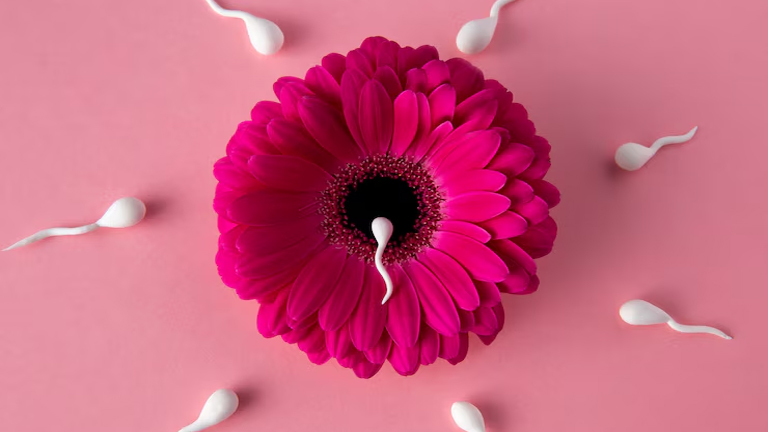Women’s reproductive health is a crucial aspect of overall well-being, influencing physical, emotional, and social health. From menstrual cycles to pregnancy, birth control, and menopause, understanding reproductive health helps women make informed decisions. This comprehensive guide covers key topics, including menstrual health, birth control options, fertility, and menopause management.
1. Menstrual Health: Understanding Your Cycle and Common Issues
Menstrual health is a fundamental part of women’s reproductive health. A regular menstrual cycle typically lasts between 21 to 35 days, but many women experience irregularities due to various factors.
Period Tracking and Its Benefits
Tracking your menstrual cycle helps identify patterns, predict ovulation, and detect irregularities. Apps like Flo, Clue, and Period Tracker make monitoring easier. Benefits include:
-
Predicting ovulation for conception or contraception
-
Identifying irregularities early
-
Managing PMS symptoms effectively
Common Menstrual Disorders
Irregular Periods
Causes include stress, hormonal imbalances, thyroid disorders, or polycystic ovary syndrome (PCOS). Treatment depends on the underlying cause.
Premenstrual Syndrome (PMS)
PMS includes mood swings, bloating, cramps, and fatigue. Managing it involves:
-
A balanced diet (reducing caffeine and salt)
-
Regular exercise
-
Stress-relief techniques (yoga, meditation)
Polycystic Ovary Syndrome (PCOS)
PCOS is a hormonal disorder causing irregular periods, weight gain, and infertility. Treatment includes:
-
Lifestyle changes (diet and exercise)
-
Birth control pills to regulate cycles
-
Fertility treatments if planning pregnancy
2. Birth Control Options: Choosing the Right Contraception
Selecting the right birth control method depends on effectiveness, side effects, and personal preferences. Here are the most common options:
Hormonal Methods
Birth Control Pills
-
Combination Pills (estrogen + progestin) prevent ovulation.
-
Progestin-Only Pills (mini-pills) thicken cervical mucus.
-
Side Effects: Nausea, weight gain, mood changes.
Intrauterine Devices (IUDs)
-
Hormonal IUDs (Mirena, Kyleena): Release progestin, last 3-7 years.
-
Copper IUD (ParaGard): Non-hormonal, lasts up to 10 years.
-
Effectiveness: Over 99% in preventing pregnancy.
Contraceptive Implants (Nexplanon)
-
A small rod inserted in the arm, effective for 3 years.
-
Stops ovulation and thickens cervical mucus.
Non-Hormonal Methods
-
Condoms: Protect against STIs and pregnancy.
-
Diaphragm/Cervical Cap: Used with spermicide.
-
Fertility Awareness Method (FAM): Tracks ovulation to avoid unprotected sex on fertile days.
3. Fertility and Pregnancy: From Conception to Childbirth
Understanding fertility helps women plan for pregnancy or avoid it naturally.
Ovulation and Fertility Window
-
Ovulation occurs around day 14 of a 28-day cycle.
-
The fertile window includes 5 days before ovulation and the ovulation day.
-
Signs of Ovulation:
-
Increased cervical mucus (egg-white consistency)
-
Mild pelvic pain (mittelschmerz)
-
Slight rise in basal body temperature (BBT)
-
Common Fertility Issues
-
Endometriosis: Causes painful periods and infertility.
-
Low Ovarian Reserve: Reduced egg count with age.
-
Male Factor Infertility: Affects 30-40% of infertility cases.
Assisted Reproductive Technologies (ART)
-
In Vitro Fertilization (IVF): Eggs are fertilized in a lab and implanted.
-
Intrauterine Insemination (IUI): Sperm is placed directly into the uterus.
-
Egg Freezing: Preserves fertility for future use.
Pregnancy Symptoms and Care
Early signs include:
-
Missed period
-
Nausea (morning sickness)
-
Fatigue and breast tenderness
Prenatal care involves regular check-ups, a balanced diet, and avoiding harmful substances.
4. Menopause Symptoms and Management
Menopause marks the end of reproductive years, typically occurring between ages 45-55.
Common Symptoms
-
Hot Flashes & Night Sweats
-
Mood Swings & Depression
-
Vaginal Dryness
-
Bone Density Loss (Osteoporosis Risk)
Management Strategies
-
Hormone Replacement Therapy (HRT): Relieves severe symptoms but has risks.
-
Lifestyle Changes:
-
Regular exercise (weight-bearing activities)
-
Calcium and vitamin D supplements
-
Stress reduction techniques
-
-
Natural Remedies:
-
Black cohosh (for hot flashes)
-
Soy products (phytoestrogens)
-
Conclusion
Women’s reproductive health encompasses menstrual cycles, contraception, fertility, and menopause. By understanding these aspects, women can take proactive steps toward better health. Regular check-ups, a healthy lifestyle, and staying informed empower women to make the best choices for their bodies.
Prioritize your reproductive health today—because a healthy woman leads to a healthier future!


